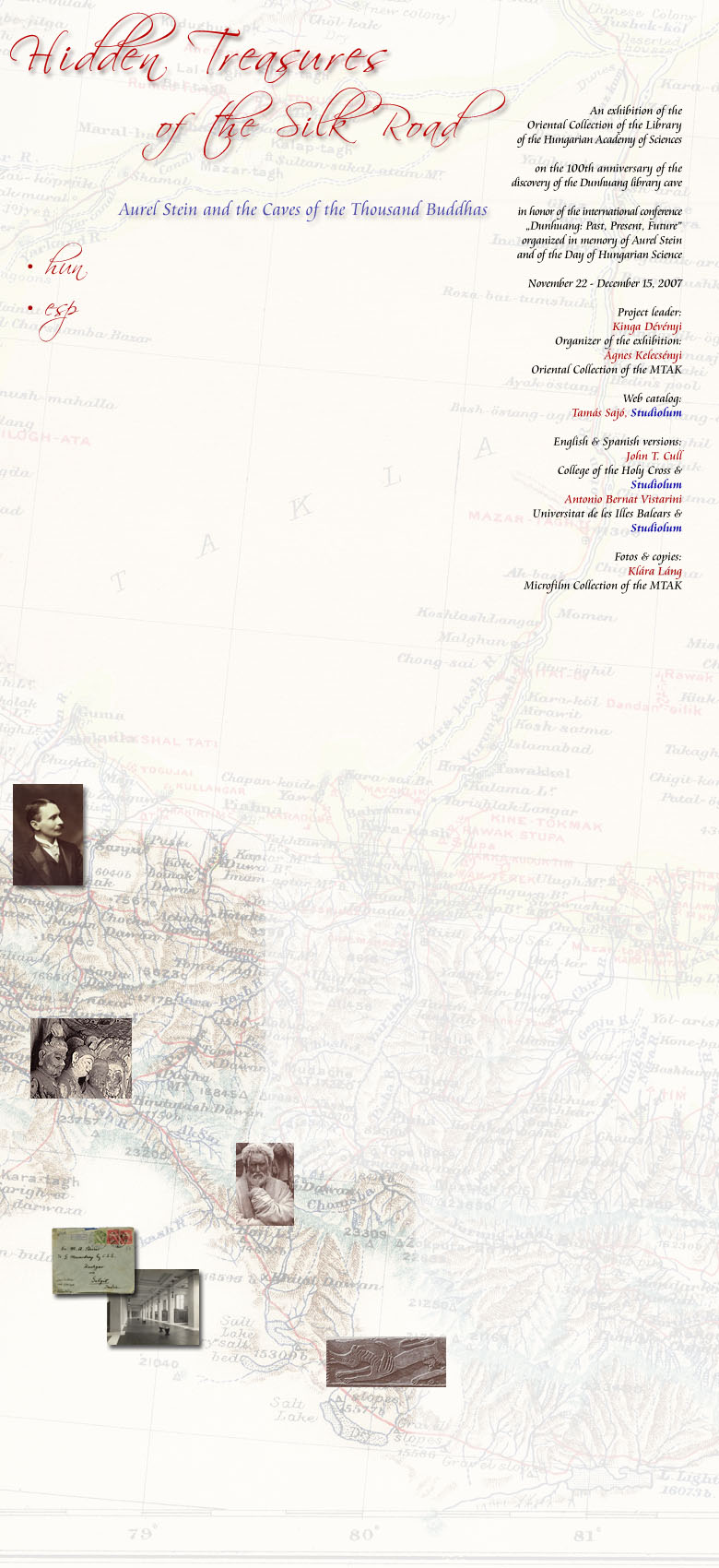|
It was the heritage, the written and material relics of this cultural encounter that attracted the Hungarian-British archeologist and explorer Marc Aurel Stein (Pest, 1862 - Kabul, 1943). Between 1900 and 1916 he led three major expeditions to carry out the excavation of the sand-buried ruins in the Tarim Basin, discovering hitherto unknown languages and scripts, and shedding new light on the history and cultural history of the people who once lived there. His abiding fame, however, is due to the discovery of the treasure kept in the Cave Temples of the Thousand Buddhas in Dunhuang. The Caves of the Thousand Buddhas are situated in the Chinese province of Gansu, some 15 kilometers to the south-east of Dunhuang. From the mid-4th century a Buddhist community flourished there, whose members kept on building and decorating the cave temples for over a thousand years. Today 492 caves with 45 thousand square meters of frescos and more than 2000 stucco statues form this marvellous complex of art considered as one of the most outstanding Buddhist art galleries in the world. This place, however, is famous for another find as well. In 1900 a Daoist monk discovered in a cave a secret cell whose entrance was closed in the 11th century. Thanks to the extreme aridity, this hiding place conserved an exceptional collection of thousands of manuscripts and silk paintings in very good condition.
“I had been greatly impressed by his glowing description of the fine fresco paintings and stucco sculptures … It had, in fact, been a main cause inducing me to extend the plans of my expedition so far eastwards into China.” From 1887 Aurel Stein lived in India and
in the employment of the British-Indian Goverment. The geographical
distance, however, did not mean entail a complete removal from his
homeland. He visited Hungary
regularly, and maintained close contact with the
This exhibition guides us, by means of photos, maps, letters and manuscripts from the legacy of Aurel Stein as well as various contemporary and modern publications, along the route of his second Central Asian expedition to the site of the great discovery made exactly a century ago, and it also offers a glimpse into the life-work of the two excellent scholars, Aurel Stein and Lajos Lóczy. |

 The
Silk Road, the Eurasian trade route linking China with the Mediterranean
seashore was used not only for the purpose of commerce, but it also was the
meeting point of the large civilizations of the East and West.
From the 2
The
Silk Road, the Eurasian trade route linking China with the Mediterranean
seashore was used not only for the purpose of commerce, but it also was the
meeting point of the large civilizations of the East and West.
From the 2


